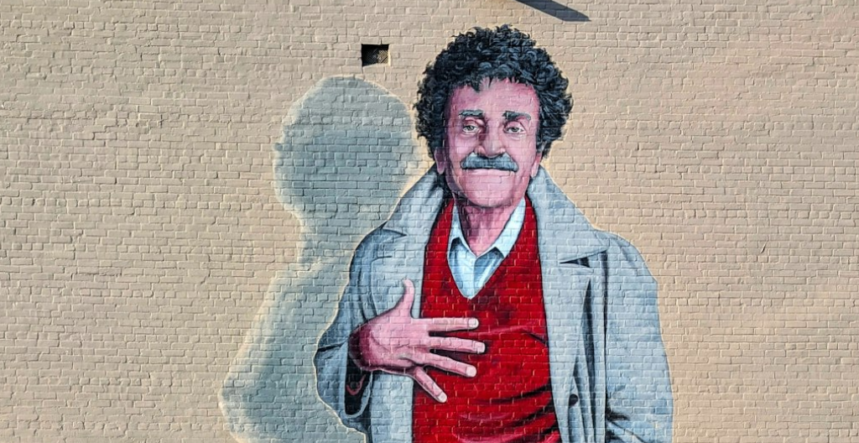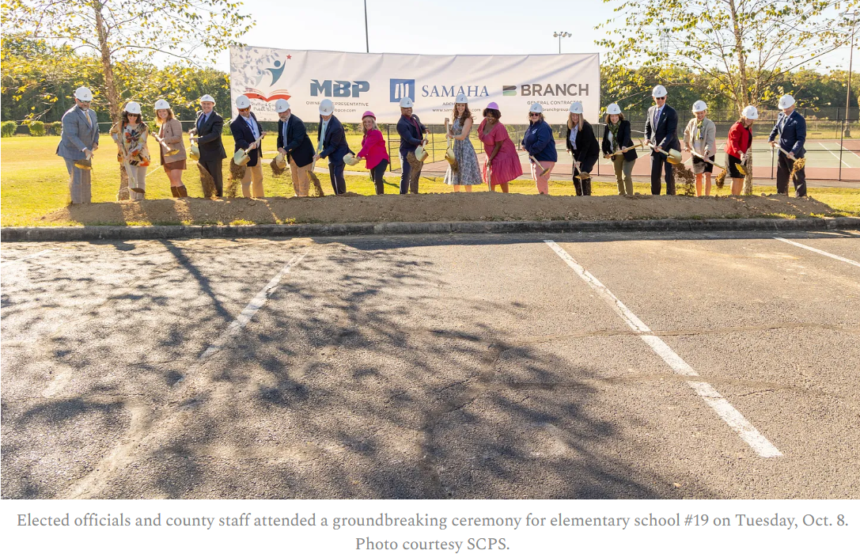September 17, 2023

THE YEAR OF SECOND CHANCES
by Lara Avery
Published by William Morrow (August 22, 2023), Hardback – $30, 288 pages
Hardback edition
Kindle edition

Reviewed by Penny A Parrish
The bride, the groom, the vows: “To love and to cherish until death do us part.” Almost everyone who has spoken those words to a spouse expects that the latter phrase is WAY down the road. But for Robin Lindstrom, the ending came much too fast. She is a young widow, in her 30s, desperately missing Gabe, the love of her life. This was not the plan.
But another plan was created by Gabe before he left his earthly bonds. On the one-year anniversary of his death, Robin gets a previously scheduled email from him, telling her she is signed up for an online dating service called “Fluttr.” Gabe wants her to move on, to not be alone, to do this for him if not for herself.
With help from her lackadaisical brother Theo, Robin enters the virtual world, answering questions about her likes, dislikes, habits, pet peeves, etc. Gabe has even provided a wonderful photo of Robin on a bicycle that he took one day when they were still together – her hair blowing in the wind, a surprised smile on her face. Suddenly her phone is pinging with interested men. Sorting the proverbial wheat from the chaff is no easy feat. She is propositioned, lied to, shown fake photos of potential dates, blocked and about to stop when one guy starts an online conversation with potential. A meeting – in a public place – is set up.
Thus readers will meet a few different guys. Her date with Colin begins at a bowling alley and ends at a stand-up comedy show. Jake is from a neighboring town and they meet at the fair. Ted gets her involved with makeup for a little theatre group.
But this book is much more than “new guy in new chapter.” We learn the back story of how Robin and Gabe met, how they spent their time together, how they lived in rural Minnesota in a farmhouse built by his ancestors. We meet Levi, the best friend of the couple. We meet Robin’s mom, who runs a restaurant and lives on cigarettes and alcohol.
Grief often shares space with guilt. How can you move on with someone else without feeling like you are betraying the one you lost? How do you deal with the pity once your date learns you are a widow? When is “the” time to move on, to create a new life and hold memories close but not let them rule you? Those questions are the heart of this book, which made me cry, laugh, smile, ponder – and vow never to try online dating!
Happiness Falls
By Angie Kim
Published by Hogarth (August 29, 2023), Hardback – $30, 400 pages
Hardback edition
Kindle edition

Reviewed by Ashley Riggleson
There are few thrillers I have thought more about over the years than Angie Kim’s debut novel, Miracle Creek. So, I was so excited to see that her newest novel, Happiness Falls was available for review. I jumped at the chance, and I was not disappointed. This compelling and twisty family drama gives much food for thought, and Angie Kim is in top form.
Happiness Falls tells the story of a biracial Korean American family whose lives are turned upside down when the patriarch goes missing. The action begins when the youngest son, Eugene, returns from the park agitated and without his father, Adam, in tow. Thinking that their father has simply been delayed, the family waits to call the police, a decision they will all come to regret. After several hours pass, they finally reach out to detectives.
Told from the perspective of Eugene’s older sister, Mia, it originally seems that Happiness Falls tells the story of an ordinary family. As Kim peels back the layers in this story, however, it becomes apparent that things are more complicated than Mia would initially have readers believe.
To begin with, readers quickly learn that Eugene is a disabled, nonspeaking child. He is on the Autism spectrum and has a disorder called Angelman Syndrome. This combination of disorders means that, though Eugene always appears to be happy, he is unable to express what is truly going on inside. And so, he is initially unable to tell either his family or detectives what happened to his father, even though, presumably, he witnessed the events. So, they must rely on whatever clues they can find outside of Eugene’s perspective.
As the investigation continues, the police and the family discover several things about Adam that they were unaware of before; not all of them good. Although Adam himself is not found in the park, police find some of his things—an empty wallet, a backpack, and a waterlogged notebook. While Adam’s disappearance is at the center of this narrative, this book does not feel like his story. Instead, Kim tells a story about what happens to a family when their father/husband disappears in the early days of the pandemic.
Before picking up Happiness Falls, readers should know that, though Kim’s novel has many of the elements of a thriller, the pacing is not as fast as the synopsis above suggests. Instead, it is a slow burn, and this choice could put many readers off at first. I love a faced-paced thriller with lots of twists, but I also loved this slower take on the genre in which we get a deep dive into this ultimately loving but deeply flawed family.
Like many Asian-American writers, Kim uses this text to explore Mia’s identity as an Asian-American woman who feels that she exists in a liminal space—neither fully Korean, nor fully American. Readers know from the story itself but also from Kim’s skillful use of footnotes that this identity informs Mia’s thinking on a variety of topics and events.
I would argue, however, that this story is more concerned with Eugene’s identity as a disabled teenager. Kim explores, for instance, the difference between nonverbal and nonspeaking, and the question of how much Eugene understands about what is happening around him informs much of the novel’s plot. Because, sadly, even Eugene’s own family fails to comprehend that, although Eugene is disabled, he is not absent from the world.
Many of the conflicts in the narrative arise because of his family’s ableism and the ableism of society at-large. As the novel progressed, I felt saddened, enraged, and astounded by the enormity of the injustice that has been done to Eugene, an issue Mia herself explores at length. Of course, Kim also deftly explores many other themes, but it is this tender and bruised discussion about disability that I will remember most.
I loved Miracle Creek, but although that novel also explores disability, Kim expands on those themes in a way that I did not know I needed.
As a disabled person, I am often skeptical of novels that center disabled experiences when the author is not (to my knowledge) disabled themselves. But Angie Kim is one of the few writers that I would say is up to the challenge.
This profoundly unsettling but poignant novel is sure to start conversations and linger in readers’ minds well after the final page is turned.
GOOD NIGHT, IRENE
By Luis Alberto Urrea
Published by Little Brown and Company (May 30, 2023), Hardback – $29, 416 pages
Hardback edition
Kindle edition

Reviewed by Penny A Parrish
I have a photo of my dad in his Army Uniform from WWII. He never spoke to me about his service. I never spoke to my mom about the impact of that war on their family and friends. I have his dog tags, but no memories to hold on to.
The author’s mother, Phyllis Irene, who served as a “Donut Dolly” in WWII, is the inspiration for this novel. The dollies drove 2 ½ ton GMC trucks called Clubmobiles, outfitted with a galley to serve coffee and make donuts for the troops. In this book, Irene and Dorothy, known as Dot, make their way from the US to England, on to Normandy following Patton’s 3rd Army, then to and through the Battle of the Bulge and finally to Buchenwald. They saw the war up close and under fire yet had to continue to smile, keep mugs filled and listen to scared young men talk about home.
From the beginning, Irene’s mission was fraught with danger. She was from Manhattan and rural Suffolk County in NY. Escaping an abusive fiancé, she joined the American Red Cross (ARC) and reported to Washington D.C. for orientation and training. Dorothy came from a farm in Indiana. She had lost both of her parents, and her brother was killed at Pearl Harbor. Those events made both women, and many others you meet in this book, want to find a way to serve their country and perhaps exact revenge for the loss of their loved ones.
From D.C., the Donut Dollies (they hated that term, by the way) sailed to England as part of a convoy. When one ship went down due to a torpedo, Irene watched men drown and listened to their screams. The other boats did not stop. That was the first of her nightmares.
Irene and Dorothy, assigned to drive the Rapid City (each Clubmobile was named for a place), quickly learned the lingo of the ARC. Donuts were sinkers. The cans of Carnation milk were steel cows or tin cows. The flaps on the truck that opened to serve the GI’s were flaps. The women also picked up several other terms that I won’t list here.
The faces of the Donut Dollies ached by the end of each day due to constant smiling. “On their right hands both women sported aluminum rings fashioned by GI’s out of the downed German airplanes scattered around the landscape. They each felt like war brides to a few thousand husbands.”
Urrea spent 20 years researching this book, originally planned as a non-fiction account of the Clubmobiles and the ARC. But primary sources were almost non-existent, and his mother never really shared this part of her life with him. He knew she had nightmares for the rest of her life, that she was severely wounded before she came home from the war, and that she served over there with her friend Jill (the basis for Dorothy).
This is a powerful book, with realistic descriptions of war and the effect on those it impacts: the GI’s, the civilians, the women who served as nurses, dollies or in other capacities. We learn about the effect on the children, the bombed-out villages, the animals and even the enemy. By using fiction, Urrea brings alive his mother and her friends in a way more powerful than if he had followed his original plan.
The writing is vivid, the incidents haunting, and the ending both uplifting and sad. And he does include a photo of his mom and her cohorts by their Clubmobile, making her story all the more poignant.
We have so few left from the WWII era. Books like this, educating readers about those who also served, are a welcome addition to our bookshelf. Perhaps the more we learn, the more we will remember.
Meet the Author (and Editor) at Barnes and Noble

Come meet the author of 30 Days with America’s High School Coaches, as well as the founder and editor of the FXBG Advance, at Barnes & Noble on September 30. Martin will be signing copies of his book.
It’s a great opportunity to pick up a good read, and talk with FXBG Advance’s editor. To those who already own a copy, or who would like to purchase one via Amazon in advance of the event, Martin will happily sign it if you swing by.
To learn more about Martin the author and writer, visit his personal website – www.martindavisauthor.com.
We look forward to seeing you on the 30th!
Help Support Local Journalism
The FXBG Advance is off and running, but we can’t do this without your help. You can support local journalism here in Fredericksburg by donating $8 a month. Your dollars will go toward hiring journalists so that we can broaden our reach and strengthen our coverage.
The content is now, and will continue to be, free.
Help us bring aboard the journalists who will elevate our coverage and strengthen the community we all share.
Consider joining for $8 monthly or $80 yearly. A $200 donation makes you a Sustaining Member, while a $500 donation makes you a Founding Member.
Thank you for reading and supporting FXBG Advance.
-Martin Davis, Editor




